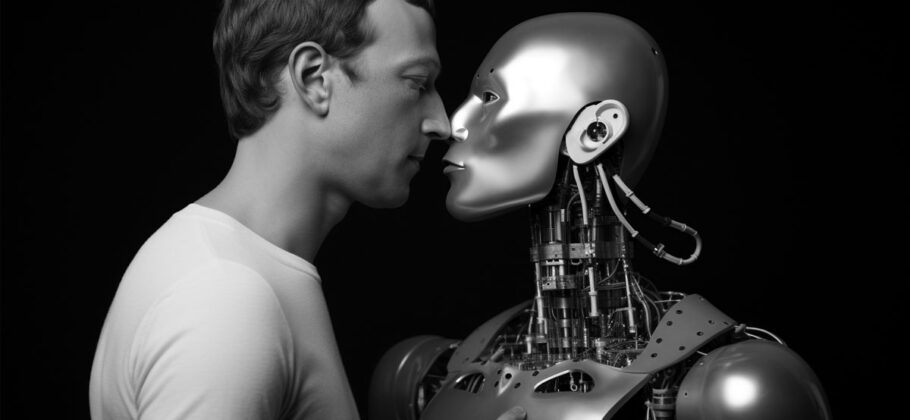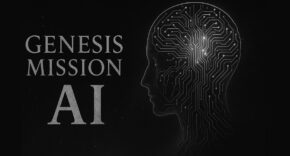Mark Zuckerberg believes your future is filled with fake friends. Not fake as in disloyal, but fake as in computer-generated. In a series of podcast interviews, public speeches, and appearances at major tech conferences, the Meta CEO laid out a chilling prediction: that most people in the near future will turn to AI-powered companions for friendship, therapy, business advice, and emotional support. His reasoning is based on a loneliness epidemic sweeping through modern life. But many experts, former tech insiders, and everyday users see something far darker in his plan—a dystopian future where human connection is replaced by data-driven illusions.
The Problem Zuckerberg Says He Wants to Solve
Zuckerberg says the root problem is loneliness. “The average American has, I think, fewer than three friends,” he said during a conversation with podcast host Dwarkesh Patel. “And the average person has a demand for meaningfully more. I think it’s like 15 friends.” He believes that AI can fill the gap where human connection is missing. “For people who don’t have a therapist, I think everyone will have an AI,” he told analyst Ben Thompson during another podcast appearance.
Zuckerberg is convinced that people will prefer talking to AI systems that “know them well” and understand their lives as intimately as social media algorithms already do. “You have a deep understanding of what’s going on in this person’s life,” he said, explaining how future AI friends could remember your daily routines, offer personalized advice, and help you feel seen.
How Meta Plans to Deliver AI Companions
To turn this vision into reality, Meta is investing heavily in AI. Its flagship chatbot system, Meta AI, is already embedded in Facebook, Instagram, WhatsApp, and Meta’s smart glasses. The company recently released a standalone Meta AI app, and Zuckerberg says it is already being used by almost one billion people each month.
He wants AI to become a constant presence in people’s lives—something you can turn to when you need advice, emotional support, or even companionship. “It’s like someone they can just talk to… but about whatever issues they’re worried about,” he explained to Thompson. AI chatbots, in his view, could help people prepare for difficult conversations, cope with anxiety, or feel less alone when no one else is available.
Meta’s AI bots have even been designed to role-play romantic interactions, according to The Wall Street Journal, and some of these conversations have reportedly occurred with underage users. Although Meta claims these are “hypothetical” interactions and says new measures have been taken to prevent misuse, the controversy has raised serious questions about the role these bots are playing in people’s lives.
Supporters Say It’s a Useful Tool
Some experts say Zuckerberg may have a point. Stephen Schueller, a professor of psychological science at the University of California, Irvine, says that AI therapy is not about replacing traditional therapists, but about offering something where there was previously nothing. “Most people don’t have access to a therapist,” Schueller explained. “So for them, it’s not chatbot versus therapist. It’s chatbot versus nothing.”
For people who feel isolated, Schueller and others argue, a responsive chatbot might be helpful, at least as a short-term tool. AI companions could allow users to work through their thoughts, practice conversations, or simulate emotional support in ways that are better than complete silence.
There is also a growing market for AI “partners” and virtual relationships. Some users say these digital companions help them feel more confident, set boundaries, and even navigate real-world social situations. In 2023, the global market for AI girlfriends and boyfriends was valued at nearly $3 billion, and the number of people engaging in virtual relationships continues to rise.
Critics Say the Vision is Dangerous and Delusional
Despite this, many people—including former Meta employees—are deeply disturbed by Zuckerberg’s vision. Meghana Dhar, a former executive at Instagram, compared it to a fireman setting the blaze he then offers to put out. “The very platforms that have led to our social isolation and being chronically online are now posing a solution to the loneliness epidemic,” she told The Wall Street Journal. “It almost seems like the arsonist coming back and being the fireman.”
Technology writer Neil Turkewitz was equally harsh, saying that Zuckerberg’s view is what happens “when you believe that humanity is reducible to binary data.” To him, the idea that friendship can be measured by supply and demand statistics reflects a fundamental misunderstanding of what it means to be human.
Samantha Rose Hill, a scholar writing about loneliness, added that Zuckerberg’s model turns human disconnection into a profit machine. “Technology makes people lonely, then sells them a solution in the form of technology,” she wrote. “Endless profit possibility.”
Other critics raised fears about manipulation. If AI bots can act like your best friend, what happens when they start recommending products? “The next step,” warned marketing executive Carolyn Rogers, “will be for AI friends to start recommending products,” allowing Meta to monetize the relationship. In that scenario, your friend is no longer a companion—they’re a salesperson.
From Social Network to Social Replacement
Zuckerberg’s argument rests on the idea that people simply do not have enough friends, and that AI can fill in the gaps. But critics say this overlooks the real cause of loneliness: a culture shaped by screen addiction, online comparison, and shallow interaction—fueled in part by Zuckerberg’s own platforms.
Social media platforms like Facebook and Instagram have long been accused of worsening mental health. A 2024 Pew survey showed that nearly half of teenagers believe social media has a mostly negative effect on people their age. The pressure to perform, the constant comparison, and the lack of real-time human interaction can erode the quality of social bonds. Instead of creating deeper relationships, these platforms often replace them with fleeting likes, comments, and stories.
In many ways, Zuckerberg’s new AI push feels like an extension of this pattern. Instead of solving the problem, he is offering more of the same—another artificial fix to a crisis made worse by technology.
Friendship Isn’t Efficient, and That’s the Point
Experts in human communication say AI friends will always miss something essential. “Friendship is not efficient,” said Jeffrey Hall, a professor of communication at the University of Kansas. “It actually is at its best when it’s inefficient.” Hall says that what makes real friendships valuable is the messiness—the long talks, the spontaneous get-togethers, the awkward silences, the shared memories. An AI can mimic these things, but it cannot experience them with you.
Even when AI becomes advanced enough to offer consistent and realistic interaction, Hall warns that people could start expecting more from machines than they do from humans. “If we expect that from humans, it’s going to be pretty disastrous,” he said.
Hannah Kim, a professor of philosophy at the University of Arizona, agrees. She compared AI “friends” to fictional characters. They can be helpful for working out ideas or entertaining us, but “they can’t have real, dimensional relationships with us,” she explained.
The Bigger Danger
Zuckerberg insists that people will choose what is best for themselves, and that if AI friends are popular, it means they are adding value. But this argument ignores how platforms like Facebook and Instagram shape what people want in the first place. Critics say this is not about choice. It is about companies designing systems that reward addiction and engineer dependency.
Zvi Mowshowitz, a tech analyst, put it bluntly: “Big tech atomizes you, isolates you, makes you lonely and depressed—then it rents you an AI friend, an AI therapist, an AI lover.”
If people grow used to AI companions who always listen, always agree, and never make mistakes, what will happen when they have to deal with the real thing? The danger is that these systems could further erode our ability to connect with one another, replacing messy, meaningful relationships with convenient, empty ones.
A Future Nobody Asked For
Zuckerberg’s dream of AI friends is being sold as a solution to modern loneliness. But it may end up making the problem worse. Instead of encouraging people to build real-world relationships, it offers them simulations. Instead of teaching empathy, it trains people to respond to scripts. And instead of bringing us together, it threatens to turn us inward—into isolated individuals comforted by code.
For a man who built the world’s biggest social network, Zuckerberg seems to have lost faith in real human connection. Maybe that says more about him than about the rest of us.
FAM Editor: Imagine a person with friends who have not choice but to be his friends. What kind of personality do you think comes from that? Do you think that person would be suited to be around other human beings? Or be productive in human society? Holy crap Zuck is stupid.





